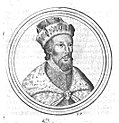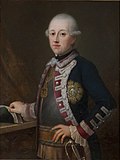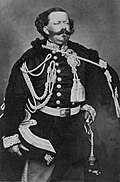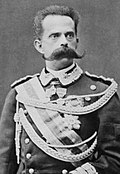This article needs additional citations for verification .(June 2024) |

The titles of the count of Savoy, and then duke of Savoy, are titles of nobility attached to the historical territory of Savoy. Since its creation, in the 11th century, the House of Savoy held the county, the ruler of which was originally styled "count," then later as "duke"; several of these rulers were called "king" at one point in history or another.
Contents
- Rulers of Savoy
- House of Savoy
- Pretenders to the throne
- Disputed Claimants
- See also
- Notes
- References
- Bibliography
- External links
The County of Savoy was elevated to a duchy at the beginning of the 15th century, bringing together all the territories of the Savoyard state under Amadeus VIII, Duke of Savoy. [1] In the 18th century, Victor Amadeus II annexed the Kingdom of Sardinia to the historical possessions of the Duchy, and from then on, the Savoyard dukes also held the title of Kings of Sardinia. The House of Savoy later went on to rule the Kingdom of Italy from 1861 to 1946 when the monarchy was abolished.
Victor Amadeus II was the longest reigning monarch of Savoy, followed by Charles Emmanuel I, and Charles III or Amadeus VIII.
















































































